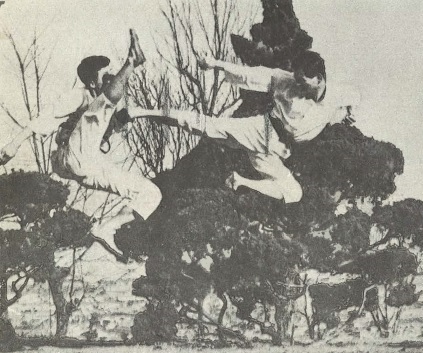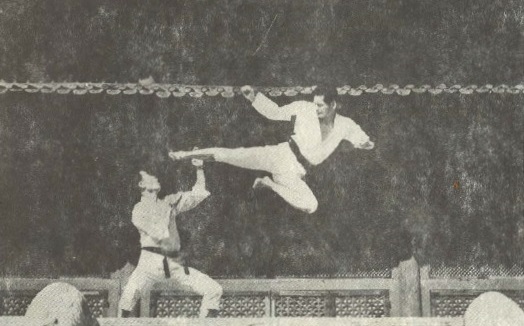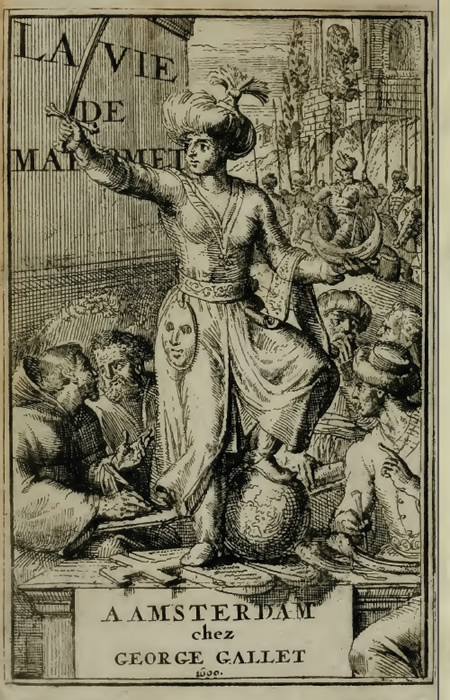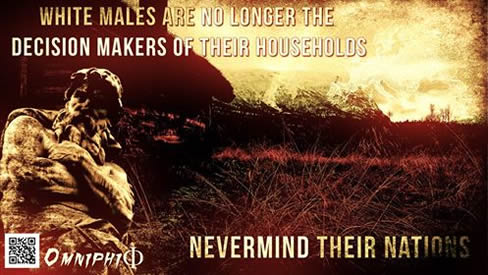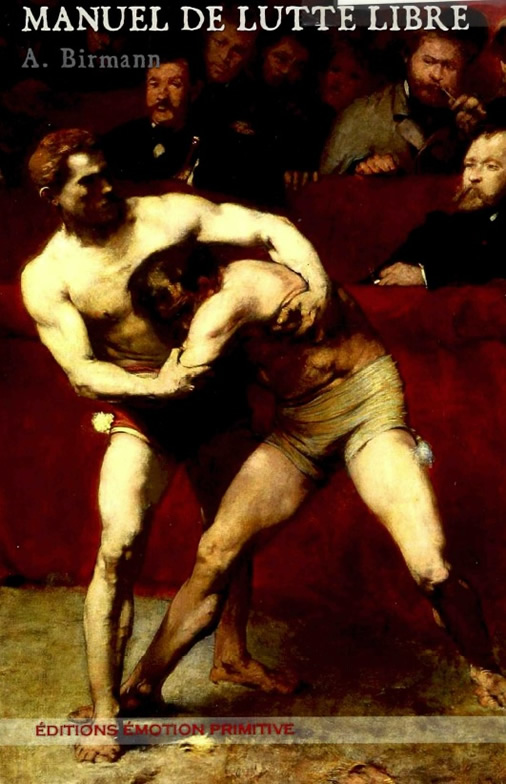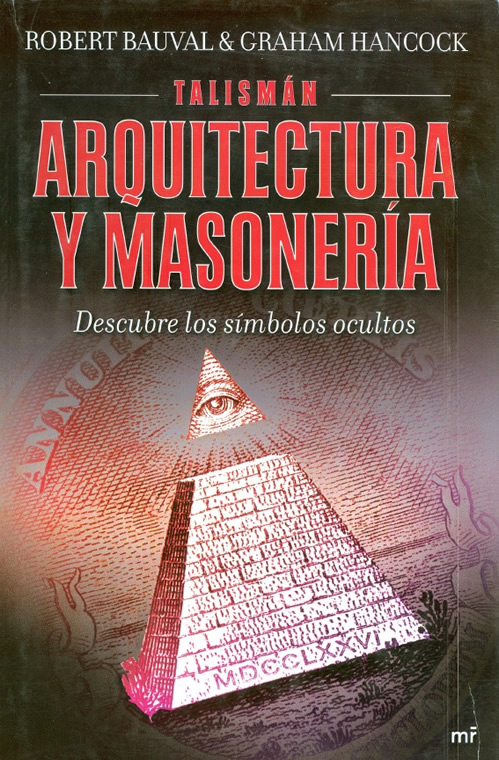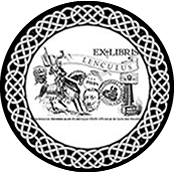
Dr. William L. Pierce PDF : Multilanguage - English - French
Dr. William L. Pierce Videos
The trouble with people
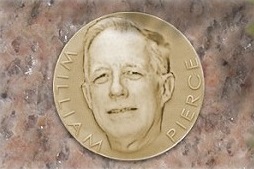 Many of our people who are attempting to recruit new members, or even to get a new person to come to one of our Sunday evening meetings have commented to me recently how very difficult it is. In the first place they find that people resist new ideas. Most people are pretty much in agreement with what their TV set has told them, and they don’t want to be told by someone else that their TV set has been lying to them.
Many of our people who are attempting to recruit new members, or even to get a new person to come to one of our Sunday evening meetings have commented to me recently how very difficult it is. In the first place they find that people resist new ideas. Most people are pretty much in agreement with what their TV set has told them, and they don’t want to be told by someone else that their TV set has been lying to them.
That’s the largest category of people that we meet. But even those people who are wise to the lies of the controlled media are not easy to motivate. Some are afraid, even if they won’t admit it. They are afraid to say or do anything, including joining the Alliance, which may cause Big Brother to retaliate against them in some way. They’re afraid they’ll be fired from their jobs, or that their tax returns will be audited, or that something else unpleasant may happen to them. And then there are the slobs who are just plain selfish or lazy and who just don’t care. They agree with us, they say, but they can’t become members because they need that three dollars a month for other things — beer, cigarettes, clothes, new records for the hi-fi, or what have you. Or they can’t come to a meeting because they ordinarily bowl on Sunday nights, or they have to get up at six o’clock the next morning, or it’s too far to drive, or they’d miss their favorite TV program — or something.
Now when we talk to people like this, day after day, and most of the people that we talk to are like this, they fall into one of the categories I’ve just described. When we talk to so many people like this, it’s easy to become disillusioned, discouraged, and cynical — or, what’s just as bad, to retreat into hobbyism.
Well it’s a good thing to become disillusioned, to get rid of false expectations — but it’s very bad to become discouraged, or to become cynical, or to become a hobbyist — and by that I mean a right-wing gossip who subscribes to everything, joins everything, and, although he really believes nothing, he makes a great game out of pretending.
The reason that so many of us start off with illusions of easy success is that we tend to judge others by our selves. We expect other people to react the same way that we do to something which is so obviously true and right and exciting.
I remember the first political magazine (National Socialist World — Ed.) I published ten years ago. I printed and mailed out three thousand copies to individuals, to libraries, news agencies, some prominent right-wing politicians, and others. I thought I was dropping a real bomb which would shake up the whole world. I really expected that I would receive long distance telephone calls from hundreds of excited people and that at least a thousand subscriptions would come pouring in. And I also expected that the enemy would immediately begin harassing me and attempting to silence me. And when almost nothing happened I just couldn’t understand it.
No long distance calls, no Jewish harassment, no signs that my magazine had inflicted a mortal wound on the System. What I did receive was a hundred and twenty or a hundred and thirty subscriptions — or about one response from every twenty five persons who received my magazine. People older and wiser than I told me that I had done quite well to get even that much response.
I had judged others by myself. I had expected the people who received my magazine to read it and then to exclaim, “Ah! Here is truth. Here is righteousness. Here is wisdom. Here is beauty. The man who has dared to publish this has real courage. He has identified the enemy. He has suggested that we fight the enemy and he has offered us a creed to serve as a basis for our fight and for building a new society. Wonderful! I’ll do everything I can to help him and to join him in any way that I can.”
At least I had expected a lot more than one out of 25, a lot more than the four per cent. response that I got, to react in that way. And actually my real response was a lot less than four per cent., probably closer to, say, one quarter of one per cent., because most of the four per cent. who did subscribe were certainly “hobbyists” — people who were not interested in really fighting the enemy or in building a new world but only in amusing and titillating themselves, only in pretending to do something from the safety and comfort of their easy chairs, only in having something new and interesting to gossip about with their fellow hobbyists.
I had expected the world, in other words, to be idealistic — and I had run head on against the hard fact that it is not. I had found out the hard way that most people are incapable of recognizing the truth even when their faces are rubbed in it and that furthermore they are not really interested in knowing the truth even if they recognize it. They would just as soon stay with the lies that they have gotten accustomed to and are comfortable with.
I discovered also that people are almost incredibly timid and that they are selfish and materialistic as well, and that their only real concern in life is in pleasing themselves and in being safe and comfortable. In other words what our late Secretary of State, Earl Butz, said about Negroes and got fired for it, is not only true of Blacks but it’s also true of most Whites as well. So I lost my illusions. But instead of becoming discouraged or cynical I tried to understand what had happened, and I think it’s important for all of us to understand so that we don’t continue laboring under false ideas and don’t become discouraged when our expectations are not met.
Before we start looking at the shortcomings of our fellow citizens that we must take into account in our recruiting efforts, though, let’s remind ourselves of one very positive and encouraging fact — and that fact is that no matter how little people seem to be motivated by idealism, still the divine spark, the fire of God, is in them — because they are parts of the whole. No matter how much they are like the other animals on this Earth, like sheep, even like lumps of clay, they are still the highest embodiment of the Creator.
Men have dreamed great dreams and then worked and fought to make the dreams reality. Civilizations have been built. Mozart and Beethoven and Wagner did compose. Michelangelo and Leonardo and Rembrandt did paint. Shakespeare and Milton did write. Newton and Darwin did commune with the Creator and discover many of Nature’s mysteries. And great idealistic movements involving millions of people have arisen and transformed the whole world time after time.
So let’s always keep that in mind. Let us remember that no matter how much trouble we may have with people who will not or can not respond to our message in the way we would like them to, no matter what obstacles we must overcome, the force pushing us onward in our task is the eternal and irresistible Life Force symbolized by our rune. It’s the upward driving force of the Creator seeking self-completion and it cannot be stopped. The only question is whether we ourselves, you and I, will play a role in the things that are to come, or whether we won’t. Whether we’ll help the Life Force in the accomplishment of its task — or whether we’ll stand aside, or even get in the way.
So people are, we are, like many other parts of the Whole, animals — and animals are motivated primarily by instinct. They are programmed by the Creator to react in certain ways to certain situations. A dog or a rattlesnake or a tarantula or an eagle has relatively little to say about the way it will behave, the way it will conduct its life. Its instincts govern it — and the same is true of Man, with only a slight difference in degree.
Now men can reason and they can do idealistic or, let us say, unselfish things. But, as a matter of fact, so can many other animals. Anyone who’s ever owned a dog or a cat knows that they can reason — although not as finely as man. In the higher animals, at least dogs and cats and horses are capable of unselfish acts. Again, it’s a matter of degree — we’re all parts of one Whole, although we’re different parts.
We’ve made the mistake in the past of imagining that a great gulf separates Man from the rest of life, from the other animals. That Man is a reasoning, compassionate, idealistic creature — and that the other animals are not. Above all, we thought, Man reasons and the other animals don’t. Well now we’ve learned in the last few decades that the ability of non-human animals goes quite a bit beyond the sort of reasoning we can observe in our pet cats and dogs. Chimpanzees, for example, we know now, not only use tools but they also make tools. And they can be taught to communicate with men, using a language complete with rules of grammar, even though their vocal apparatus is not suited for human speech.
So the “great gulf” has disappeared and in its place we have a continuum, a continuously ascending hierarchy of life. The ability to reason and to do other things we once thought of as exclusively human is distributed along this continuum, and all we can say is that the ability becomes more pronounced, more refined, as we ascend through the various species toward Man, and then through the various races of Man, and finally through the various individuals who make up our own race. But just as we now must share our so-called human attribute of reason with other animals, so we share their attribute of instinct much more than we were formerly willing to admit. The fact is that although Man can reason, it’s instinct — inborn behavior which is pre-programmed by the Creator — which determines most of what we do on this Earth.
Some people, especially those who have been influenced by humanist ideas — that is, by the notion that human beings are somehow distinct and separate from the rest of the whole and are the possessors of something called “human dignity” which differentiates them from all other animals and also incidentally makes them all equal to each other regardless of race, color, creed, national origin, or sex — such people may find what I’ve said offensive. But that makes it no less true.
And it’s interesting to note that the principal propagandists for “human dignity” are the very ones who best understand the essentially instinctual basis of human behavior and who make the most use of that understanding. They are the skilled manipulators of mass behavior who use the news and entertainment media and all the techniques of Madison Avenue to assure that, on the average, we’ll think and vote and spend our money the way they want us to.
They manipulate our sexual instinct and our herd instinct, or instinct to conform to those around us, and our instinct for self-preservation — just about the same way that we use our knowledge of animal behavior to get our domesticated animals, our cattle, our sheep, our horses, to do what we want them to do. The only essential difference being that the Madison Avenue manipulators must use a considerably refined technique.
Consider, for example, herd instinct. That’s a simple name for a very complex phenomenon. It governs our behavior in many different ways, some of them quite obvious and direct, others much more subtle. It’s not reason but herd instinct which tells us to wear approximately the same type of clothes as the people around us; to read the same books; to cheer for the same team; to like the same music; and to pay lip service to approximately the same political, social, and religious ideas. A person doesn’t become a Baptist, or a Quaker, or a Catholic through a process of comparing these different sects and then making a rational decision as to which one is best — at least, 999 out of 1,000 people don’t do it that way. A person goes to the church he does because it’s the one the people around him, usually his immediate family, go to.
And herd instinct also plays a very important role in determining people’s attitudes towards things like racial integration and racial intermarriage. People will generally be for or against the things that their neighbors are for or against. Again, it’s not reason which determines their attitudes, not a calculated attempt to curry favor or to be popular by pretending to agree with one’s neighbors, at least not in the great majority of cases. One’s beliefs and attitudes genuinely change in order to stay in harmony with what one perceives to be the beliefs and attitudes of those around one — and it’s herd instinct which causes this change.
Now I don’t want to spend a lot of time tonight trying to analyze this phenomenon — it’s a complex and tricky subject with all sorts of complications. As just one example, people don’t usually remain among the same neighbors all their lives. They move from one part of the country to another to go away to school, to change jobs, and so on. And the attitudes acquired in one environment, that is among one particular group of neighbors, take a while to change when a person moves into a new environment, a new group of neighbors.
And since, because of all the moving around that we have today in this country, no environment, or at least very few environments, are really homogeneous anymore but instead consist of people from many different environments with, consequently, different attitudes, herd instinct has a little trouble in deciding just which shades of opinion to make a person conform to.
Furthermore there are often conflicting instincts at work simultaneously. Take racial integration, for example. We have on the one hand a natural xenophobia which tends to keep us from mixing with alien races — and on the other hand we have the influence of the manipulators using herd instinct to make us conform to their immediate projected goals of “integration” and forced equality. But despite the complexity of the instinctual control of our behavior we can make some general observations.
First, the dominant role of instinct in our lives is not, as the liberals would have us believe, something shameful, something to be overcome, something which, despite the fact that we share it with other animals, is somehow less than human. No, it’s simply the way things are — and, if we look at it the right way, then it’s pretty hard to criticize the Creator for it. If sex, for example, were a matter of reason instead of instinct, why then none of us would be here. Our race would be extinct, because long ago some nutty religion would have sprung up and declared sex “sinful” and told us that the only way to get into Heaven is to remain chaste. But no such religion has ever prevailed, though a number have tried, because our sexual instinct just wouldn’t stand for it. And to our xenophobia we also owe the very existence of our race. It’s what has kept us from mixing with non-White races long ago and, thereby, disappearing through the process of amalgamation. In fact, evolution could not take place at all if there were not an instinctive tendency of like to breed with like.
Our reason can easily be fooled — but our instincts, in general, are far, far wiser, far less fallible. When reason and instinct are in conflict it will generally be the instinct which is right. It’s our instincts which show us the way to the upward path — and our reason which must be used as a tool to help us in the direction pointed out to us by our instincts, rather than being used as a means of opposing these instincts.
But again we’re dealing with a complex and tricky subject and we have to be very careful about our conclusions. For instance, I just said that our instincts are usually right. But one of the ways in which we have been led astray has been through the artificial manipulation of those instincts. And in today’s unnatural society even we are obliged to buck some instincts — herd instincts for example — in our work to bring about certain changes which will allow a more natural play of our instincts and allow the Creator’s upward urge to again become predominant.
There is one firm and safe conclusion we can draw, however, and it’s this: Our efforts will be more effective — we’ll be more successful in recruiting new people — the more we are able to work with people’s instincts instead of against them. Now we are appealing to just one instinct. It’s the highest, the finest, the noblest instinct that we have — the Creator’s urge toward self-realization. But we cannot now also appeal to people’s cruder instincts, the instincts which, in most people, are the dominant ones. We cannot, at this time, offer people safety or popularity or wealth. All that we can offer them is an opportunity to make sacrifices, to undergo dangers and hardships, and to suffer social ostracism for the sake of the Creator’s purpose. And that means that our message will find a response only in a small minority of our people at this time. That makes things slow and difficult and often discouraging for us. But there’s no way around it — for a while yet.
The good aspect of this is that we’ll recruit only the spiritually best of our people — and those are the ones on whom we must build our foundation. But time is also important to us: We have two thresholds to cross which we discussed earlier, and we want to cross them as soon as we possibly can. And so we must be thinking now of the ways in which we can broaden our appeal in the future, and ways in which we can appeal to people’s other instincts in a natural and healthy way consistent with our purpose.
The most important of these ways is the building of a genuine organic community. When we have not just a collection of people paying their dues each month to the Alliance, but a real community of men and women and children living together, working together, and sacrificing together for our common purpose, our shared purpose — then we will have come a long way. And it need not be an especially large community. What’s more important than numbers is the sense of community, the feeling of community. When we have that then we can put our own herd instinct to work — and it will be a much more powerful, more compelling herd instinct than that which the enemy is now manipulating; because the enemy, in order to accomplish his destructive purpose, had first to set about breaking down and undermining the already-existing sense of community in America. Before he could begin employing herd instinct to promote racial mixing, he had to destroy the basis on which herd instinct had formerly opposed that mixing. He had to destroy White solidarity. He had to turn a national and racial community into an atomized mass of individuals, and that’s exactly what he’s done.
I doubt that anyone here feels a sense of belonging to Arlington, Virginia, say, as a community — or to Washington, or Falls Church, or Silver Spring, or wherever you happen to live. That disappeared years ago, decades ago, in America — and people miss it. There are, I’m sure, a few neighborhoods left in America, ethnic neighborhoods, racially homogeneous neighborhoods — South Boston, perhaps a few other places — but the seeds of their destruction have already been sown and are growing fast. And the same is true of nearly all the various Christian churches, all the other social entities which used to provide for people the feeling of community which their souls crave. And so it will be of enormous importance to us when we have in the Alliance a real community and can offer to soul-sick Americans the sense of security, of companionship, of moral reinforcement which only belonging to an organic community can provide.
That’s what we can look forward to and that’s what we must work for now. When we have it, then we’ll not be obliged so much to buck people’s instincts — and our recruiting efforts will certainly be much, much more effective. But for now we still have to do things the hard way — and it will be slow and difficult for a while yet, and all I can say to you is that we must continue building our own consciousness and thus our strength in the ways that I’ve told you about, and we must concentrate our efforts on person-to-person recruiting — each of us, every day, in the way that I talked to you about a couple of weeks ago. And then we will have a community, and we will cross our two thresholds, and our truth will prevail.
November 7, 1976
nationalvanguard.org
Les Carnets de Turner
Who we Are
Pensées sur le 4 juillet
Le port d’armes en Allemagne, 1928-1945
La mesure de la grandeur
Cosmotheism Trilogy
Out of the Darkness
Vision of a future world
Le féminisme : le grand destructeur
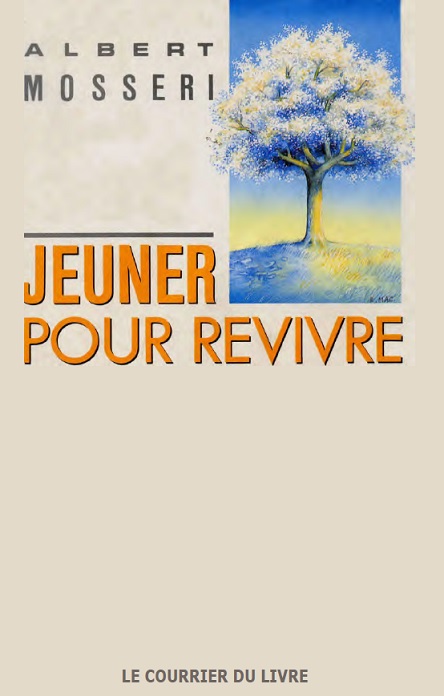
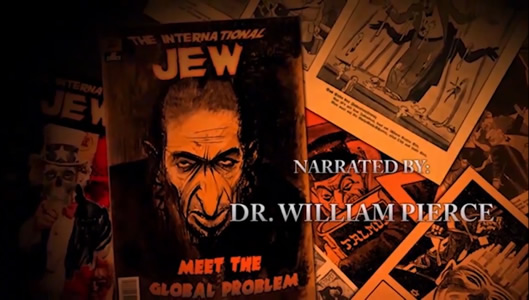


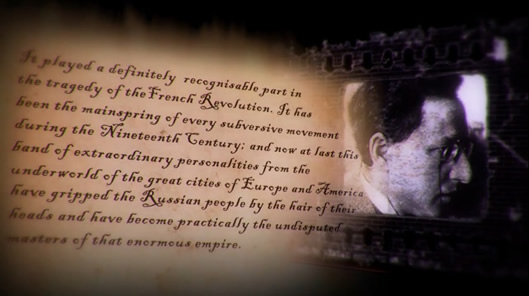


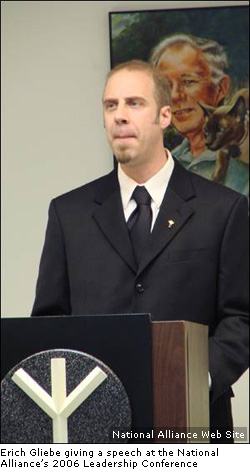



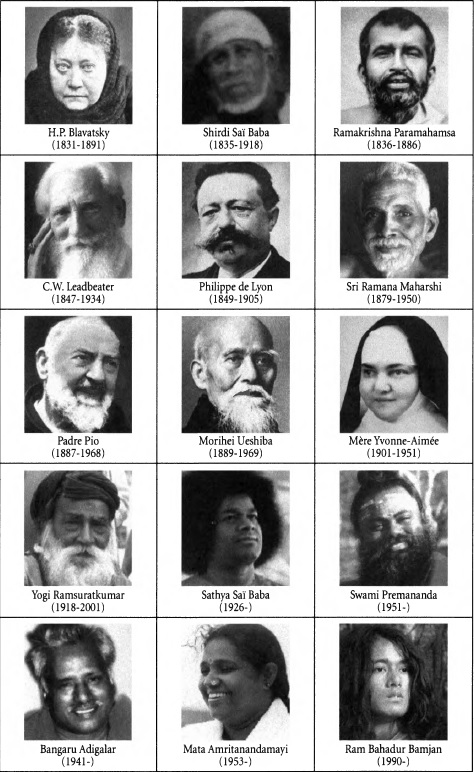

 Many of our people who are attempting to recruit new members, or even to get a new person to come to one of our Sunday evening meetings have commented to me recently how very difficult it is. In the first place they find that people resist new ideas. Most people are pretty much in agreement with what their TV set has told them, and they don’t want to be told by someone else that their TV set has been lying to them.
Many of our people who are attempting to recruit new members, or even to get a new person to come to one of our Sunday evening meetings have commented to me recently how very difficult it is. In the first place they find that people resist new ideas. Most people are pretty much in agreement with what their TV set has told them, and they don’t want to be told by someone else that their TV set has been lying to them.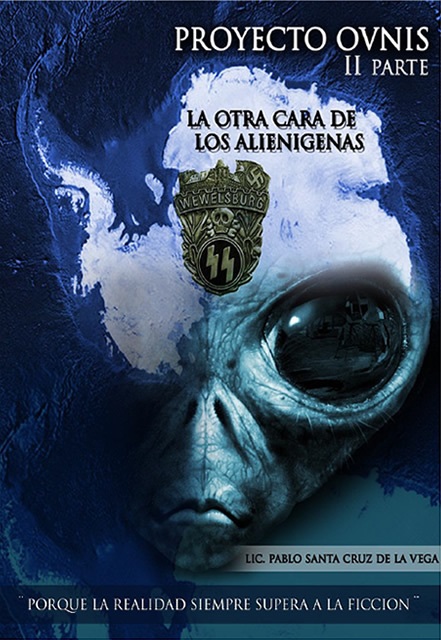

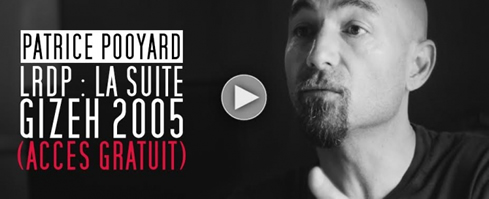

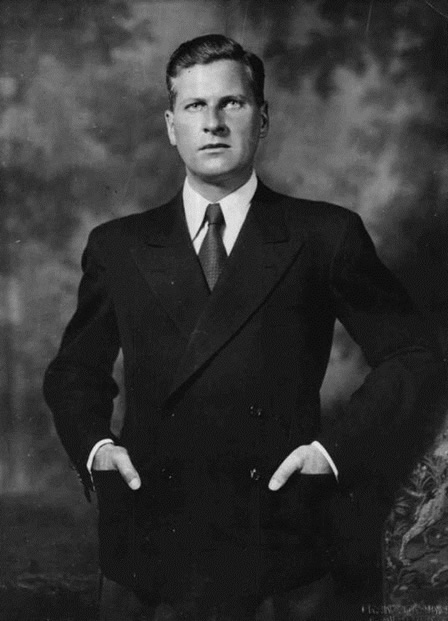

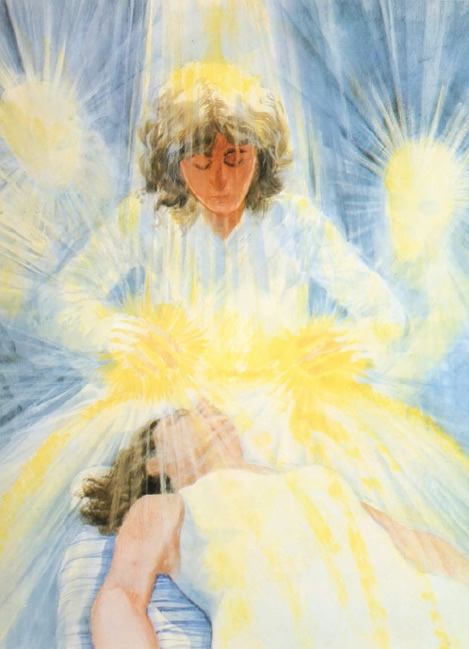
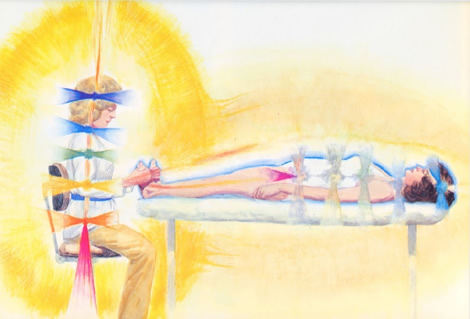





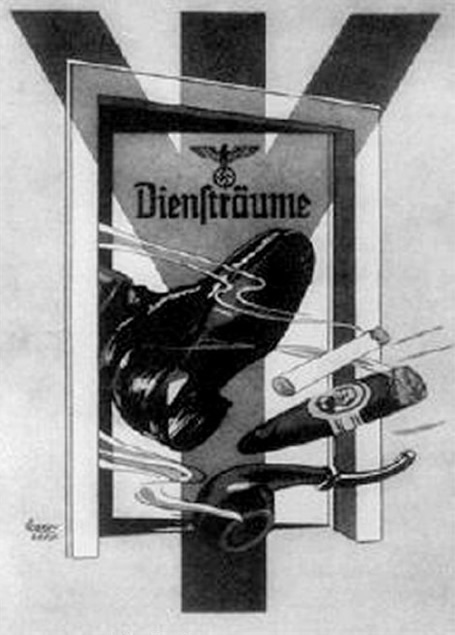

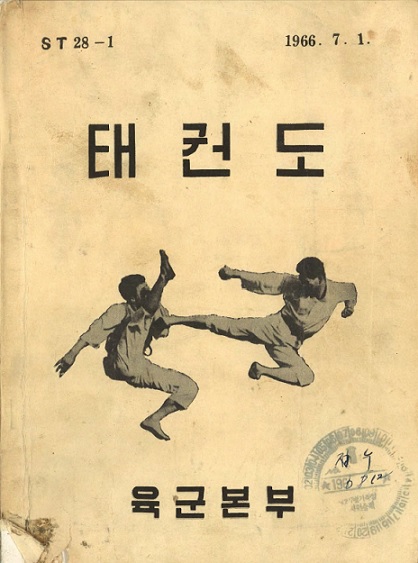
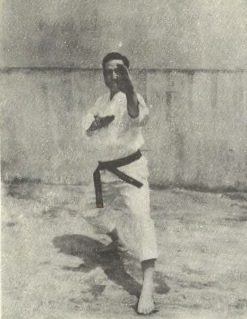 This historic 1966 Republic of (south) Korea’s Army Taekwon-Do Manual was preserved by Grandmaster Jung Woo-Jin, the CEO and Publisher of TaeKwonDo Times Magazine. As a young Soldier he was issued this book and used it as a guide to teach when deployed to Vietnam during their Civil War. Grandmaster Jung also used it as a tool to teach himself the Chon-Ji set of forms that became known as the Chang Hon Patterns, after the Pen Name of the principle designer General Choi Hong-Hi.
This historic 1966 Republic of (south) Korea’s Army Taekwon-Do Manual was preserved by Grandmaster Jung Woo-Jin, the CEO and Publisher of TaeKwonDo Times Magazine. As a young Soldier he was issued this book and used it as a guide to teach when deployed to Vietnam during their Civil War. Grandmaster Jung also used it as a tool to teach himself the Chon-Ji set of forms that became known as the Chang Hon Patterns, after the Pen Name of the principle designer General Choi Hong-Hi.